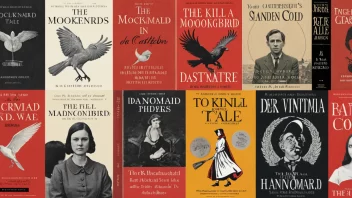Classic prose holds a unique charm that continues to captivate readers across generations. The beauty of classic literature lies not only in its storytelling but also in its ability to evoke emotions and provoke thought. To appreciate the elegance of classic prose, readers can adopt several approaches that enhance their connection to these literary treasures.
One of the most effective ways to appreciate classic prose is to immerse oneself in the emotional landscape of the characters. Classic literature often explores profound themes such as love, loss, ambition, and redemption. Take, for instance, the characters in 'Anna Karenina' by Leo Tolstoy, whose complex motivations and moral dilemmas resonate with readers on a personal level. Engaging with the emotional depth of these characters allows readers to reflect on their own experiences and relationships, making the narrative feel relevant and impactful.
Additionally, understanding the significance of the narrative voice in classic prose is crucial. Authors often employ distinct narrative styles that shape the reader's experience. For example, the stream-of-consciousness technique in Virginia Woolf's 'Mrs. Dalloway' invites readers to delve into the intricacies of the protagonist's thoughts and feelings. Recognizing these stylistic choices can enhance appreciation and deepen understanding of the author's intent.
Exploring the themes within classic literature can also foster a greater appreciation for its beauty. Many classics tackle universal themes that transcend time and culture, such as the quest for identity or the struggle against societal norms. In 'The Catcher in the Rye,' J.D. Salinger addresses themes of alienation and the search for authenticity, which continue to resonate with modern readers. By reflecting on these themes, readers can find connections between the past and present, enriching their understanding of the text.
Moreover, embracing the challenges that often accompany classic prose can lead to personal growth. These texts may include complex language, historical references, or philosophical ideas that require thoughtful engagement. Rather than feeling discouraged by these challenges, consider them opportunities for exploration. Take notes, discuss interpretations with fellow readers, or consult literary guides to navigate through difficult passages. This active engagement transforms reading into a rewarding intellectual pursuit.
Joining reading groups or online forums can also enhance appreciation for classic literature. Engaging in discussions allows readers to share insights, interpretations, and personal reflections about the texts. Hearing different perspectives can reveal layers of meaning that may have gone unnoticed and foster a sense of community among literature enthusiasts.
Lastly, allow yourself to experience the joy of discovery. Classic literature is vast, encompassing a wide range of genres and styles. Explore works from various authors and cultures, and keep an open mind. If one classic doesn’t resonate with you, don’t hesitate to seek out others. The literary world is filled with treasures waiting to be uncovered.
In conclusion, appreciating the beauty of classic prose is a multifaceted endeavor that involves emotional engagement, understanding narrative style, exploring themes, embracing challenges, and participating in discussions. By adopting these approaches, readers can unlock the timeless allure of classic literature, discovering its relevance to their lives and the world around them. Classic prose is not merely a relic of the past; it is a living dialogue that continues to inspire and resonate with readers today.
The Timeless Allure of Classic Prose
Discover the timeless charm of classic prose and learn how to deepen your appreciation for these literary treasures.






